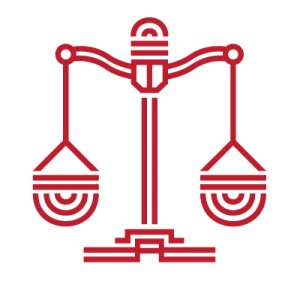Best Annulment Lawyers in Midrand
Share your needs with us, get contacted by law firms.
Free. Takes 2 min.
Free Guide to Hiring a Family Lawyer
List of the best lawyers in Midrand, South Africa
About Annulment Law in Midrand, South Africa
Annulment is a legal process that declares a marriage null and void as if it never legally existed. In Midrand, South Africa, the law distinguishes annulment from divorce. While a divorce ends a valid marriage, an annulment recognizes that the marriage was never valid in the first place due to specific legal reasons. Annulments are less common than divorces, but they may be applicable in certain circumstances prescribed by South African law.
Why You May Need a Lawyer
The annulment process can be complex and the grounds for annulment are strictly defined. People may need legal help with annulment for several reasons, such as:
- Questions about whether their marriage meets the legal criteria for annulment
- Collecting and presenting evidence to support an annulment claim
- Navigating the court process and filing the correct documentation
- Responding to opposition from the other party
- Handling related matters like property division or child custody that may arise alongside the annulment process
A lawyer can assess your situation, explain your rights, and help you achieve the best possible outcome.
Local Laws Overview
Annulments in Midrand are governed by South African national laws, most notably the Marriage Act and the Recognition of Customary Marriages Act. Some marriages may also fall under the Civil Union Act. Key aspects to be aware of include:
- Grounds for annulment include lack of consent, one spouse being already married (bigamy), one or both spouses being minors without proper consent, mental incapacity, or marriages prohibited by law due to close family relationship (consanguinity).
- Marriages entered into through fraud, duress, or mistake may also be annulled.
- Annulment is not automatic. You must apply to the High Court to have your marriage declared null and void.
- Annulment can have implications for property rights and children, similar to divorce.
Understanding the nuances of these laws and procedures is essential for effectively navigating an annulment in Midrand.
Frequently Asked Questions
What is the difference between annulment and divorce?
Annulment declares a marriage was never legally valid, while divorce ends a valid marriage. Annulment results in the marriage being considered null from the beginning.
What are the grounds for getting an annulment in Midrand, South Africa?
Common grounds include lack of consent, mental incapacity at the time of marriage, bigamy, one or both parties being underage without required consent, marriages between close relatives, and marriages entered under duress, fraud, or mistake.
Can I apply for annulment without a lawyer?
While you can represent yourself, the process is legally technical. It is strongly advised to seek a lawyer’s assistance to ensure all legal requirements are met and your rights are protected.
How long does the annulment process take?
The time frame varies depending on the complexity of the case and how quickly you provide the necessary evidence. Simple cases may be resolved in a few months, while complex ones may take longer.
What happens to children from a marriage that is annulled?
Children from an annulled marriage are considered legitimate, and custody or support will be determined by the court based on the best interests of the child, similar to divorce cases.
Does annulment affect property division?
Yes. The court will address property and financial issues arising from the annulled marriage. Each case is considered individually, depending on circumstances and applicable matrimonial property systems.
Can religious annulments be recognized by South African law?
Religious annulments have no legal standing under South African law. Only a court-declared annulment is recognized for civil purposes.
Is there a time limit to apply for annulment?
There is no absolute time limit, but the sooner you apply after discovering the grounds for annulment, the better, as delays may complicate the process.
What evidence is needed for an annulment?
Evidence depends on the grounds but could include documentation proving bigamy, lack of consent, mental incapacity, or relationships by blood. Witness statements and expert reports may also be needed.
What court handles annulments in Midrand?
The High Court of South Africa deals with applications for annulment, as these matters involve declarations regarding the validity of marriages.
Additional Resources
If you need more information or assistance regarding annulment in Midrand, you may find the following resources helpful:
- Department of Home Affairs - For marriage records, certificates, and status verification
- Legal Aid South Africa - Offers free or affordable legal services to qualifying individuals
- South African Law Society - For help finding qualified legal practitioners
- High Court of South Africa - Gauteng Division, Pretoria for official forms and procedural guidance
- Community Legal Clinics in Midrand and Gauteng
Next Steps
If you are considering an annulment, take the following steps:
- Gather all relevant documentation related to your marriage, such as marriage certificates and proof of your grounds for annulment.
- Consult a qualified attorney who specializes in family law and annulments in South Africa.
- Discuss your situation openly with your lawyer and provide any evidence or information they request.
- Follow your lawyer’s advice regarding documentation, application filing, and possible court appearances.
- Stay informed and attend all necessary legal proceedings as required by the High Court.
Getting professional legal support will give you the best chance of achieving a smooth and effective resolution to your annulment case.
Lawzana helps you find the best lawyers and law firms in Midrand through a curated and pre-screened list of qualified legal professionals. Our platform offers rankings and detailed profiles of attorneys and law firms, allowing you to compare based on practice areas, including Annulment, experience, and client feedback.
Each profile includes a description of the firm's areas of practice, client reviews, team members and partners, year of establishment, spoken languages, office locations, contact information, social media presence, and any published articles or resources. Most firms on our platform speak English and are experienced in both local and international legal matters.
Get a quote from top-rated law firms in Midrand, South Africa — quickly, securely, and without unnecessary hassle.
Disclaimer:
The information provided on this page is for general informational purposes only and does not constitute legal advice. While we strive to ensure the accuracy and relevance of the content, legal information may change over time, and interpretations of the law can vary. You should always consult with a qualified legal professional for advice specific to your situation.
We disclaim all liability for actions taken or not taken based on the content of this page. If you believe any information is incorrect or outdated, please contact us, and we will review and update it where appropriate.











